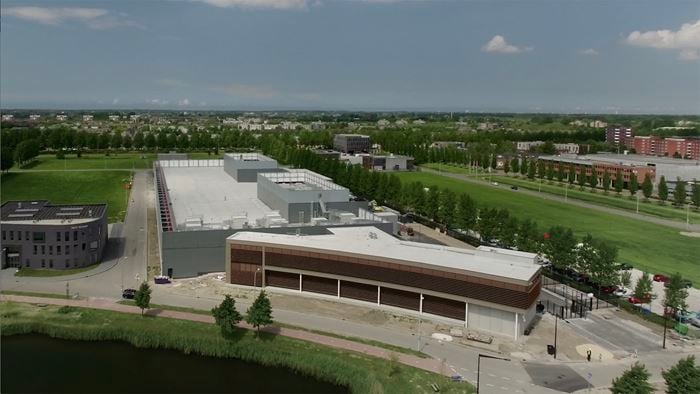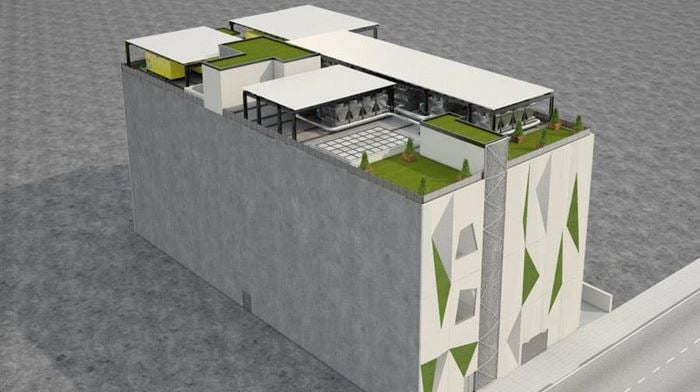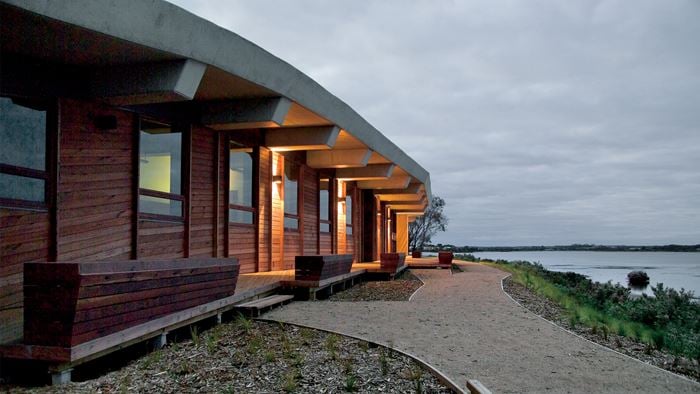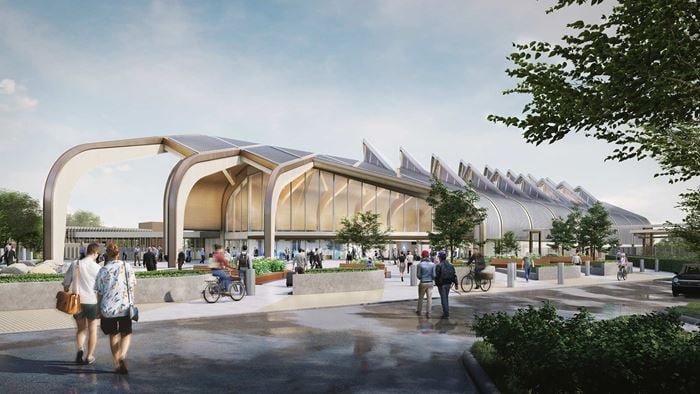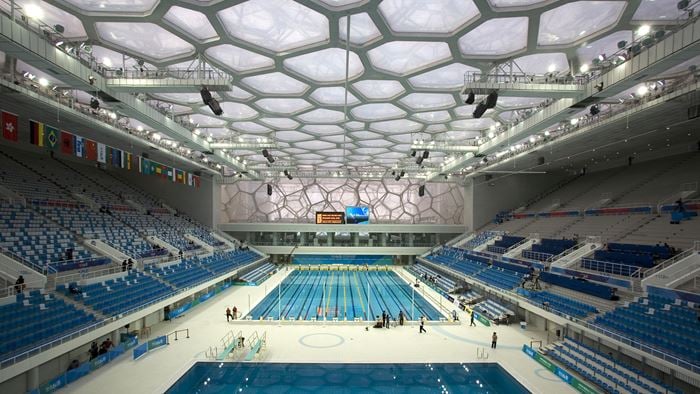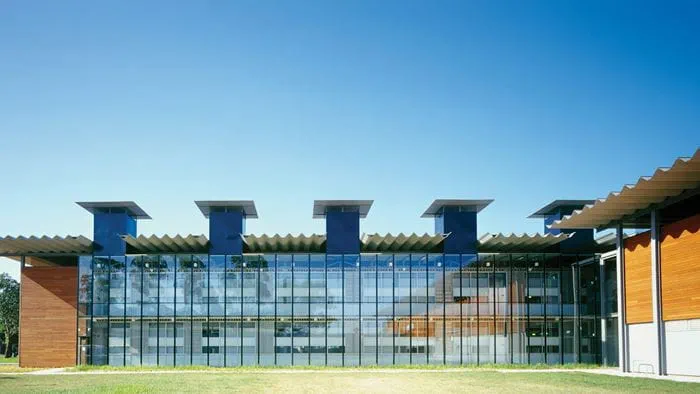Rampant data consumption has created a growing market for data hosting; with more capacity being added to the market on a daily basis. In order to retain a competitive edge, operators need to be able to quickly deliver additional hosting and processing capacity along with solid infrastructure – all at a reasonable cost.
A reliable infrastructure network, high internet penetration rates and connectivity along with comparatively lower power costs are making Russia a go-to location for data centres. IXcellerate’s expanded, carrier-neutral Moscow One Data Centre leads the pack as one of the country’s largest data hosting facilities.
Arup was appointed as general designer and partner to provide a range of services for the delivery of the Moscow One Data Centre. The key challenge for this project was to maximise the site’s current utilisation while preparing it for the fast-changing needs of tomorrow’s data hosting market: how do you put together a scalable design able to meet future capacity demands while retaining a relatively nimble overall footprint?
Arup supported the client throughout the project lifecycle, from the initial project feasibility and design phase in 2011 all the way to the latest expansion. Arup also managed the Uptime Institute Tier III Design certification, the global data centre standards body whose stringent requirements guarantee a data hall can be serviced without any downtime.
Project Summary
2,500m2 - the largest data hall in Russia
13.7MWtotal power capacity
1.4annual PUE at full load
Having identified an ideal location in Moscow, IXcellerate wanted to upgrade the existing single-volume warehouse into a well-connected, blackout-proof data centre. Data centres offer a range of services to clients, including a reliable power supply as well as cooling and ventilation systems to ensure connectivity and serviceability. Clients are looking for colocation services to seamlessly connect their servers, storage and networking equipment to a wide range of service providers, including network operators.
Future-proofing data centres: maximising scalability, minimising capex
The main challenge for the Moscow One Data Centre was to upgrade the building’s shell into a top-of-the-range data centre with extensive add-on capacity, while keeping a lid on initial capital investment. A brownfield site, the data centre was located near key internet lines and had very solid power supply. For the initial phase, Arup carried out the due diligence, concept development and feasibility study of the data warehouse.
As high-security facilities, data storage properties require a very exact approach to infrastructure design, including the physical shape and layout of the space; as well as data-critical systems including power, cooling and ventilation, and contingency planning for disaster recovery.
“There is no doubt that Arup is an expert in the field of data centre engineering. I like the way they manage their processes and how they care about their clients. ” Sergey Vyshemirskiy Technical Director, IXcellerate
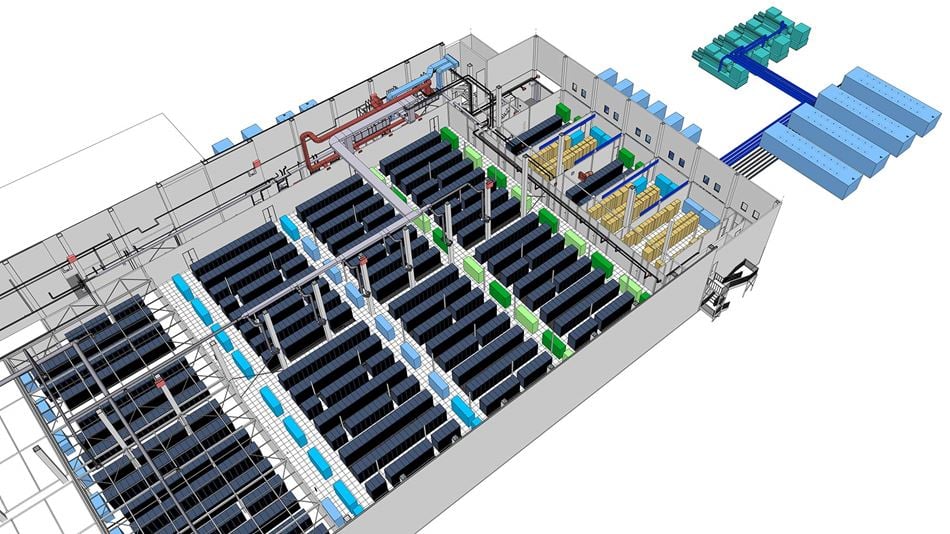
Modularity and sustainability: designing upgrades without disrupting service
The quick, successful turnaround of the first data hall (Phase 1) saw IXcellerate target a second expansion phase with more ambitious data hosting capacity requiring the customised installation and scalability of the associated power supply and cooling infrastructure, all within the same existing warehouse footprint. Modularity and sustainability were two key concepts for the design of the new data halls. Adopting a sequential approach, the single-volume warehouse was designed to easily add-on further equipment housing capacity, while optimising construction and equipment-related costs.
Critical infrastructure like power and cooling capacity was designed to be easily scalable, allowing potential users to take a long-term view on the vast, yet hyperconnected data campus. Phase 2 included a significant upgrade to the cooling system, with the introduction of energy-efficient chiller-based systems that use environmentally-friendly air-cooled chillers with free-cooling option.
Data racks of Moscow One Data Centre
Uptime Institute’s Tier III Design certification: auditing a data centre’s reliability
For the third and most recent expansion, Arup was again brought on board to help deliver the design. The arrival of new end-users required another upgrade: the provision of much higher power and cooling requirements, including the building of a new energy plant hosting uninterruptible power supply units backed up with batteries and diesel generators, with a total power capacity of 13.7 MW. Energy optimisation was a key concern: at this stage, we introduced energy-efficient chiller-based systems that use environmentally-friendly adiabatic cooling, with the ability to use recycled condensate and rainwater, which helped further reduce the data centre’s annual power usage effectiveness (PUE).
Arup was also appointed as the lead consultant to process the Tier III Design certification from Uptime Institute, which sets out a range of internationally recognised standards covering mechanical and electrical elements. According to the certified design documentation, the Moscow One Data Centre is capable of providing non-stop, fully concurrent operations. Additionally, all maintenance, including repair works, can be undertaken without shutting down the main engineering systems or impacting the IT load.
“Arup is very proud to have partnered in the design, upgrades and Tier III certification of IXcellerate’s Moscow One Datacentre, without a doubt Russia’s most cutting-edge data centre. ”
Dmitriy Plustchev Associate Director
In addition to meeting reliability standards, the project must demonstrate balanced risk management, energy efficiency, and cost effectiveness, and ultimately, it must deliver financial results. Tier III design certification helps to link the infrastructure project and commercial tasks, ensuring that significant capital investment will produce the desired result.
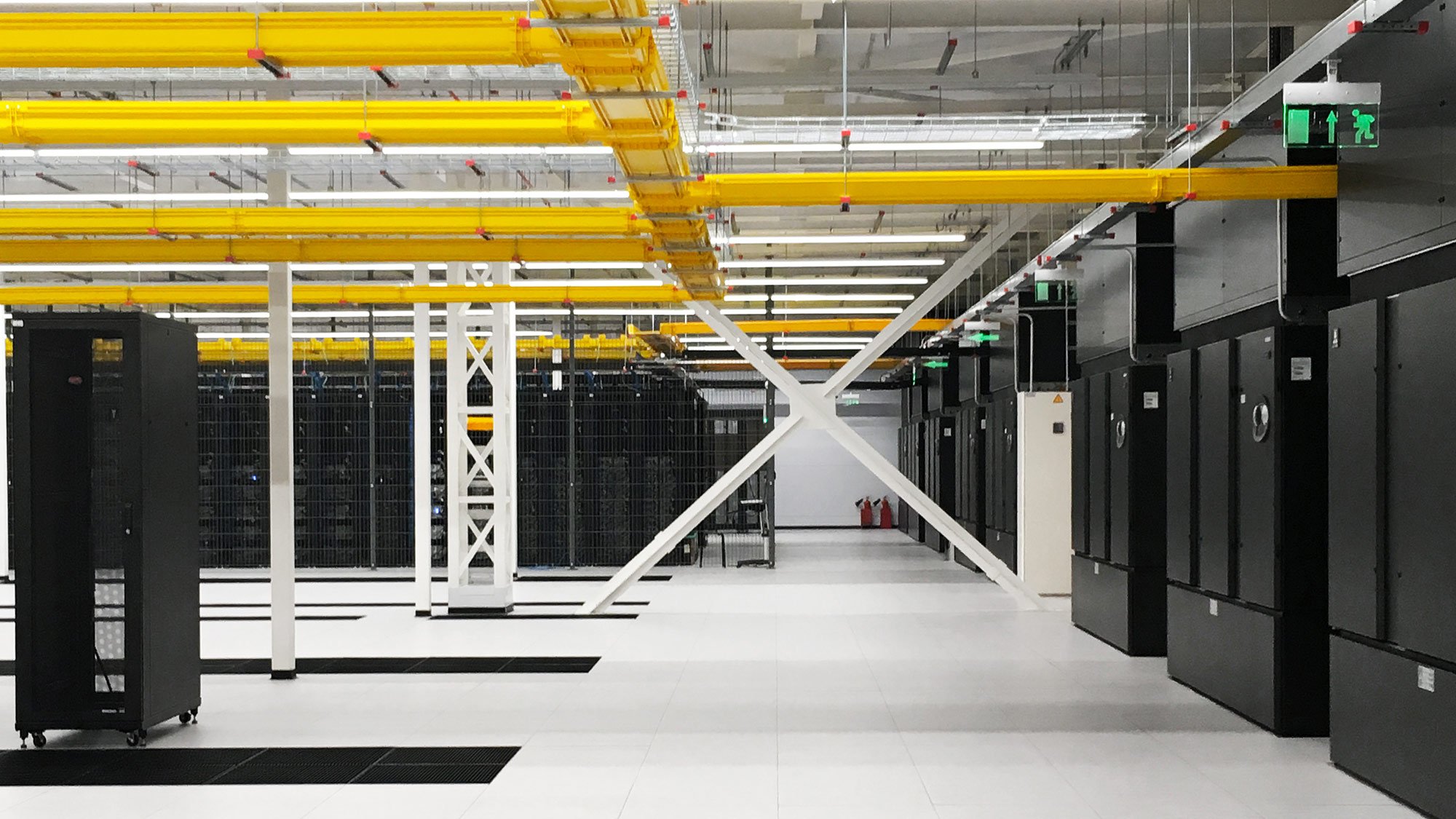 ;
;



